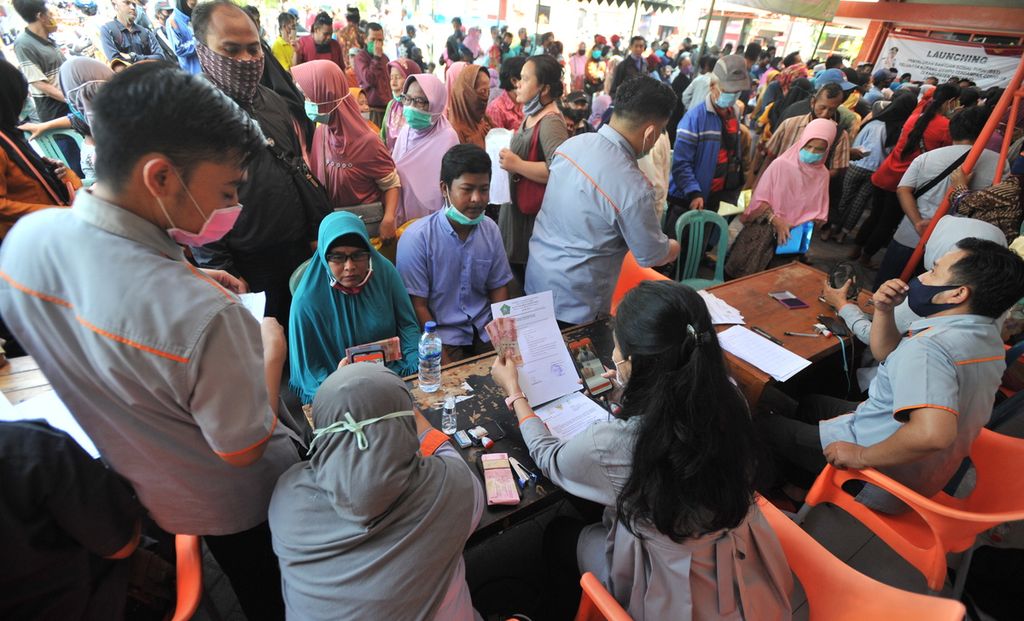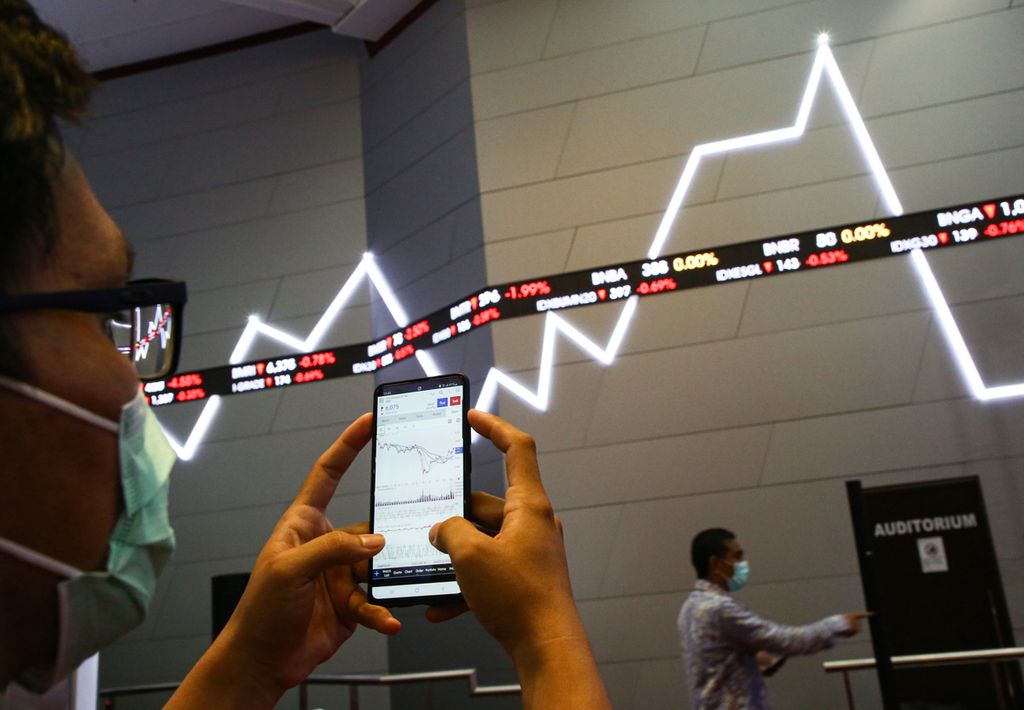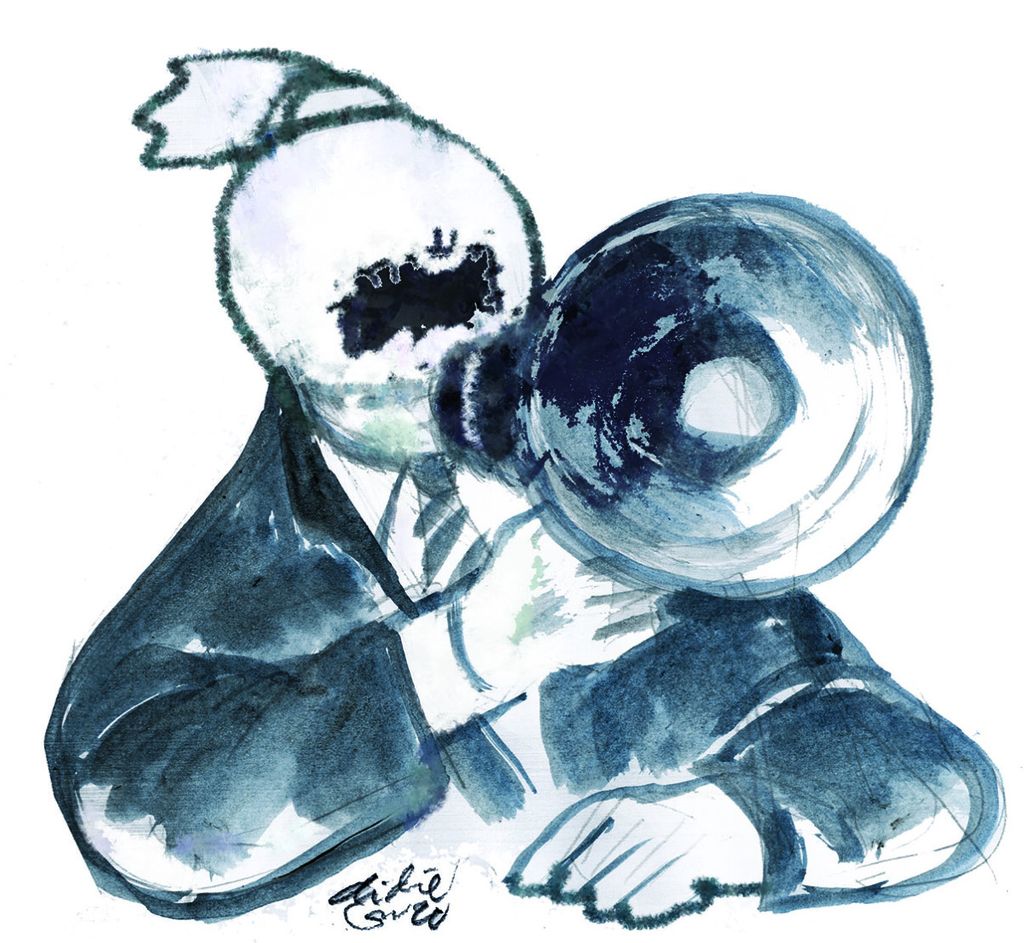Acceleration through the National Economic Recovery (PEN) 2021 Stimulus
The year 2020 was a very difficult year for human civilization. The Covid-19 pandemic is truly unpredictable and its destructive power is not measurable economically, socially or politically.

The year 2020 was a very difficult year for human civilization. The Covid-19 pandemic is truly unpredictable and its destructive power is not measurable economically, socially or politically.
In general, human beings and governments were not prepared to face this pandemic. All the joints of the economy have been devastated. Human behavior must change drastically if they want to survive and be victorious in this pandemic.
The world is forced to leave the old pattern of life. The world must adapt in an agile and dynamic manner. The economy and behavior of economic agents will lead to a new normal equilibrium that we had not previously imagined.
The Covid-19 pandemic has caused an economic crisis all over the world. Most developed countries are caught in deep economic recession, and so are developing countries, let alone poor countries.
The economy and behavior of economic agents will lead to a new normal equilibrium that we had not previously imagined.
Only a handful of countries can survive, even though with very low economic growth, such as China, Vietnam and Taiwan. China and Vietnam, which usually grow 6-7 percent, are estimated to only grow a quarter of their capacity, ranging at 1.5-2.0 percent in 2020. The success of these countries to grow positively is because they are able to control Covid-19 swiftly and thoroughly with a divine level of discipline from the government and its people.
Indonesia has been quite fortunate compared to many other countries. Its economic recession is not as severe or as deep as developed countries, countries in Asia and Southeast Asia. It seems that we have successfully pass the worst condition in the economy together even though it is heavy and painful.

Residents crowd the Sidoarjo City Post Office in East Java on Thursday (11/6/2020), the last day before the deadline to receive cash in the first phase of a social aid program from the Social Affairs Ministry. The residents ignored Covid-19 health protocol by jostling while waiting in line. Within two days, the post office had to disburse cash assistance to 9,000 beneficiary families in Sidoarjo.
Basis for optimism in 2021
There are several facts that should provide positive energy and optimism that Indonesia can immediately rise up in 2021.
First, we left the deepest contraction in Indonesia\'s economic growth in the second quarter of 2020. Its economic growth had reached the lowest critical point, namely minus 5.3 percent, but then improved with a smaller contraction, namely minus 3.5 percent in the third quarter of 2020.
Second, based on BRI research, the business activity index (IAB) of Micro, Small and Medium
Enterprises/MSMEs (BRI Micro & SME Index) shows an upward trend in business activity. The lowest point occurred in the second quarter of 2020, this is in line with Indonesia\'s economic growth whose contraction has decreased. IAB in the first quarter of 2020 was recorded at 70.8, then deteriorated (the lowest) to 65.5 in the second quarter.
However, this index improved and increased to 84.2 in the third quarter. This index is expected to increase significantly again to 109.3 in the fourth quarter of 2020. The expectation index of 109.3 (above 100) simply means that the perception of MSME debtors towards their business condition is getting better by around 9.3 percent higher than the condition of MSMEs that worsened in the fourth quarter compared to the third quarter of 2020.
Third, the macroeconomic dashboard calculated by BRI also shows an improving economic trend. The worst economic condition occurred in May 2020 with a Z-score of minus 1.88 (the lowest score in 2020). However, the Z-score slowly continued to improve and its negative value was getting smaller to minus 0.67 in November 2020 even though the real sector condition was still weak.
The Z-score of the BRI macroeconomic dashboard is calculated based on 28 macroeconomic variables, which are divided into five groups, namely (1) the real sector, (2) the financial sector, (3) the banking sector, (4) the external sector, and (5) commodity sector. A high Z-score indicates that the Indonesian economy is in good condition, whereas a low Z-score indicates that the economy is not good/deteriorating.
Fourth, inflation has started to rise in the last two months. November inflation was recorded at 0.10 percent (month on month/mom). This was the highest monthly inflation during second semester of 2020. This to some extent gives a hope signal that the demand has started to increase slightly.

Investors observe the index movement ahead of the close of trading at the Indonesia Stock Exchange 2020 in Jakarta, Wednesday (30/12/2020).
Fifth, people\'s mobility/activities have begun to slightly increase or at least the downward trend in mobility is no longer occurring, both to retail trade and recreation places, to shopping for daily necessities, and use of public transportation.
And sixth, global financial markets are calmer and have a very positive impact on the domestic financial (stocks and bonds) and foreign exchange markets. As a result, foreign capital flows began to return to national economy, especially to bonds since October 2020, namely US$2,666 million (Oct. 1-Dec. 17, 2020) and in stocks around $245 million (November 2010), although it came out again around $115 million (Dec. 1-17, 2020).
This optimism raised the stock price index to 6,095 as of Dec. 18, 2020 from 5,131 as of Oct. 27, 2020 and the yield on 10-year tenor RI bonds to 5.97 percent as of Dec. 18, 2020 from 6.62 percent as of Oct. 30, 2020, and the strengthening to Rp 14,080 per US dollar as of Dec. 18, 2020 or an increase of about 3.6 percent in the last one and a half months.
National Economic Recovery (PEN) 2021 Stimulus
The National Economic Recovery (PEN) 2020 stimulus fund has proven to have a positive impact on the national economy. Without the PEN 2020 funding, it is likely that Indonesia\'s economic recession could deepen. The PEN 2020 stimulus fund has proven to be a lever or jump start for the national economy to get out of trouble due to the Covid-19 pandemic.
The results of our research on MSME business activities also show how important this government stimulus is for the sustainability of MSMEs. The restructuring of customers affected by Covid-19 and interest subsidies enabled around 56 percent of MSMEs to survive, and some even increased their business by 12 percent. I think this is an extraordinary achievement because the pressure of the Covid-19 pandemic is truly devastating and severe.
The PEN 2020 stimulus fund has proven to be a lever or jump start for the national economy to get out of trouble due to the Covid-19 pandemic.
Restructuring and interest subsidies are the necessary requirements for MSMEs to survive, but they are not sufficient to enable MSMEs to rise immediately. In order to increase their business again, almost certainly additional new capital will be needed to respond to a boost in demand through the government\'s fiscal stimulus. MSME customers who get additional new capital through PMK 70 and banks have tasted the sweet honey. The majority of MSMEs that received new loans said that 54 percent of their businesses could still survive and unexpectedly, 31 percent said that their businesses had started to increase, even though perhaps they were limited.

To get out of Indonesia\'s economic recession, the steps taken by the government with various incentives are right and our economy should be able to recover faster than other countries. The Indonesian economy is supported by domestic demand, especially household consumption. Whenever Indonesia experiences an economic crisis, the panacea is how to maintain the purchasing power of the poor people and those vulnerable to poverty so that their consumption can survive and not be significantly eroded.
The experience of the 1998 political and economic recession proves this. Social assistance, direct cash transfers, and labor-intensive programs are the best, fast, and relatively easy ways to implement them in the field. This is quite effective in encouraging lower-level public spending because the marginal propensity to consume (MPC) is high. Lower level people, if they get money, immediately spend it to meet their daily needs.
Our calculation from the econometric model, MPC increases significantly during the national economy recession. When economic growth was contracted by 5.3 percent in the second quarter of 2020, from the previous positive growth of 3.0 percent in the first quarter of 2020, it turned out that the MPC increased from 0.54 to 0.66 in the second quarter of 2020. This MPC continued to increase to 0.88 in the third quarter of 2020 at a time when Indonesia was technically in a recession, where economic growth returned to negative 3.5 percent.
MPC of 0.88 in the third quarter of 2020 means that if the income that is ready to spend increases by Rp 100, then household consumption will increase by Rp 88. The MPC that we calculate is the national total MPC. So it can be imagined if we calculate the MPC specifically for the poor and those vulnerable to the poverty, surely the figure will be higher than this. Therefore, social assistance (bansos) and the like will have a huge impact on encouraging an increase in household consumption, especially the lower level community.
Therefore, the PEN 2021 fund stimulus should be encouraged again through social assistance and the like to immediately leverage public demand. If possible, expand the recipients, even its amount. The stimulus for PEN 2021 funds should be disbursed from an early stage and with better target for the objects and sectors. The experience in 2020 is a valuable lesson so that the realization of the PEN 2021 funds should be better than 2020. PEN 2021 must be able to accelerate the relatively weak demand in 2020. Reallocation of budgets to sectors that have proven effective in driving domestic demand is something that cannot be negotiated.
Synergy and readiness among ministries/agencies in distributing PEN 2021 funds are essential for the Indonesian economy to immediately return to the state it was in before the Covid-19 pandemic. Dissemination of information and communication of the various PEN programs must be thought out in detail, systematically and massively so that they can target and reach all levels of society.

Anton Hendranata
PEN 2021 must create a high sense of confidence in the recovery of the national economy. Restoration of confidence and rising public activity will boost domestic demand. This will then be greeted by the movement of production activities and creation of jobs. The momentum for economic recovery is already felt, so the fire must be maintained, strengthened and accelerated, thereby speeding up the national economic recovery.
Anton Hendranata, Economist of PT Bank Rakyat Indonesia (Persero) Tbk.
This article was translated by Hyginus Hardoyo.